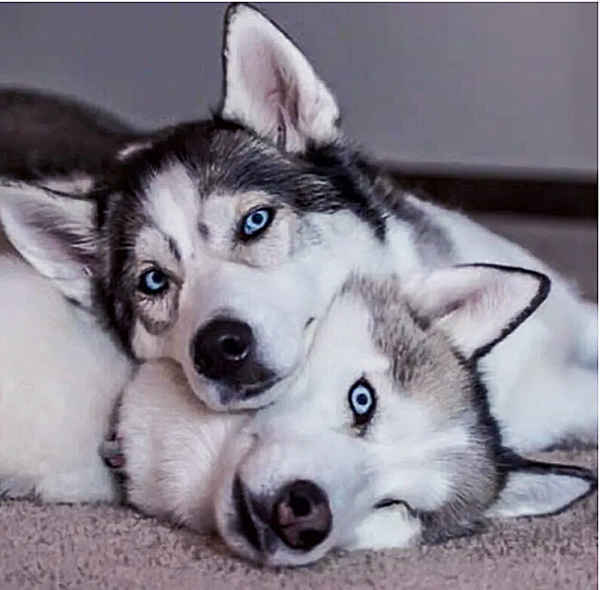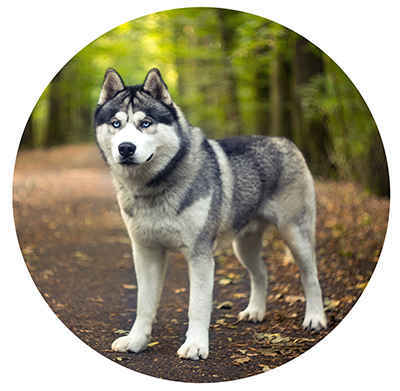Why are huskies so dramatic?
Huskies, with their striking appearance and captivating personalities, often steal the spotlight. However, behind those mesmerizing blue eyes and fluffy coats lies a streak of drama that is uniquely their own. In this exploration, we delve into the reasons behind the dramatic nature of huskies, uncovering fascinating insights into their behavior.

Ancestral Heritage
Huskies hail from the Arctic region, where survival depended on effective communication within their pack. Their dramatic vocalizations, including howls, yowls, and whines, were vital for conveying messages over vast snowy landscapes. Today, these instincts remain deeply ingrained, leading to their penchant for melodramatic expressions.
(Huskies’ howls can be heard from miles away, serving as both a means of communication and a form of territorial assertion.)
Strong-Willed Nature
Renowned for their independent streak, huskies possess a strong sense of self and a determination to do things their way. This stubbornness often manifests in dramatic displays of defiance when faced with commands or restrictions they deem unnecessary or uninteresting.
(Huskies are known escape artists, capable of orchestrating elaborate plans to break free from confinement, demonstrating their determination and resourcefulness.)
Need for Stimulation
Huskies thrive on mental and physical stimulation, thanks to their heritage as working dogs in harsh environments. When deprived of adequate exercise or mental challenges, they may resort to dramatic behaviors to alleviate boredom or frustration.
(Huskies have an impressive endurance and are capable of pulling heavy loads over long distances, showcasing their stamina and work ethic.)
Social Creatures
Despite their independent nature, huskies are deeply social animals that crave companionship and thrive in the company of their human and canine counterparts. When feeling lonely or isolated, they may resort to dramatic antics to garner attention and affection.
(Huskies have a unique ability to form strong bonds with their human families, often displaying unwavering loyalty and affection towards them.)
Temperature Sensitivity
Huskies are adapted to cold climates and possess a thick double coat that provides insulation against freezing temperatures. In warmer environments, they may exhibit dramatic behaviors – example: excessive panting, seeking shade, or even refusing to move, as they struggle to regulate their body temperature.
(Huskies have a remarkable ability to withstand cold temperatures, with some individuals capable of thriving in temperatures as low as -60°F (-51°C).)
The dramatic nature of huskies can be attributed to a combination of factors, including their ancestral heritage, strong-willed personality, need for stimulation, social tendencies, and sensitivity to temperature.

Understanding and embracing these traits can foster a deeper bond with these captivating canine companions, enriching the lives of both huskies and their human counterparts.












